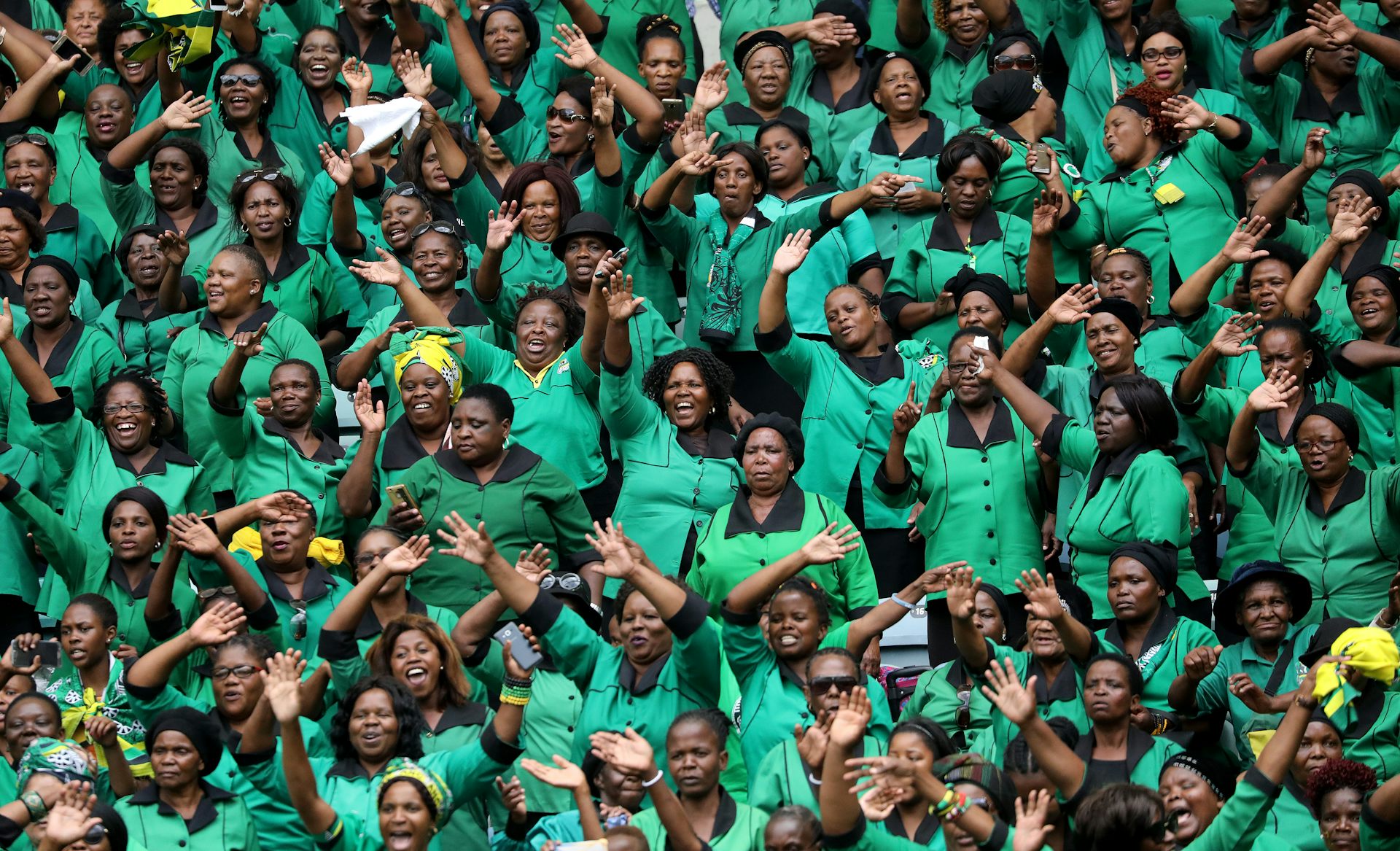
It would be surprising if race played no part in South African elections. The country’s colonial and apartheid past ranked alongside the America’s Deep South as among the most racist social orders in the world. If religious polarisation is also considered, South Africa often compared with Northern Ireland and the Israel-Palestine conflict.
The slogan “rainbow nation” seems to have retired along with Anglican archbishop emeritus Desmond Tutu. Personal racist incidents still make the headlines and class remains hued by colour at the structural level. Although slightly over half of the country’s middle class is now black, deep poverty is an almost exclusively a black experience.
Race continues to divide. Take just the best-known parties among the four dozen contesting the country’s general election this month. They all represent radically different perspectives on the race issue. And – at the extremes – there is no crossing the colour line.
For example, almost no black Africans will vote for the minority Freedom Front Plus. Almost no whites will vote for the Economic Freedom Fighters (EFF), the third-largest party. Strident racial rhetoric from some EFF leaders. And its election manifesto envisages for massive tax rises, a proviso that’s alienated white voters. For its part, the Freedom Front Plus’s campaign to defend minorities against affirmative action and black economic empowerment doesn’t attract many black voters.
But, when moving towards the leading parties of the centre, the governing African National Congress (ANC), and the official opposition, the Democratic Alliance (DA), are making serious efforts to reign in racial rhetoric among their leaders and members. They also have manifestos that promote non-racialism.
Non-racialism
The ANC and DA documents and speeches have repeated their long-held goals of non-racialism. Both try to ensure that people of all colours are represented in their executive structures.
Recently, ANC veterans condemned a statement by their powerful secretary-general urging a vote against “whites” and for “blacks”. And the party’s election campaign, particularly in Gauteng and the Western Cape, chooses issues and rhetoric which include white voters.
The DA too has more than once disciplined leaders, or got members to resign, because of racial comments on twitter or elsewhere
At a deeper level, the DA is attempting a strategy so difficult that it has only been accomplished twice before in South Africa’s history. The party seeks to change from an overwhelmingly white party to a predominantly black party. The South African Communist Party achieved this during the 1920s. The Liberal Party followed a similar path during the 1960s.
Historically, the ANC’s Freedom Charter affirmed that
South Africa belongs to all who live in it, black and white.
The ANC’s alliances from the 1950s included organisations centred on coloured – people of both European (white) and African (black) ancestry – , Indian, and white members. It incrementally opened its own membership to supporters of all colours before 1990.
At times, a few commentators have criticised the ANC as being dominated by either isiXhosa speakers or Nguni language speakers, but these complaints found little traction. The ANC’s membership embraced a nation-wide representivity among black Africans, and included activists from all of the race-based definitions entrenched during apartheid.
Strategically, the ANC is the only African nationalist party that has had to accommodate – in policy and rhetoric – a significant white minority.
More than nine-tenths of white settlers fled Algeria after independence in 1962; the same in Angola and Mozambique following independence in 1974. This also happened in Zimbabwe between the 1980s-1990s. White Algerians had the right to French citizenship; white Angolans and Mozambicans had the right to Portuguese citizenship. Over half White Zimbabweans had the right to either South African or British citizenship.
By contrast, the overwhelming majority of white South Africans have no rights to other citizenships.
The people
White South Africans are only make up 7,8% of the population. But they remain strategically important. They still own most capital and most companies. They constitute a significant proportion of management and in most of the professions.
The western powers, investors, and media remain sensitive to their concerns and anxieties.
Interestingly, statistics show that white living standards have risen higher than anyone else’s since 1994. That is not exactly the “genocide” proclaimed by the global alt-right.
There is a wide range of black views on colour and race relations. Some activists in the Rhodes-must-fall and Fees-must-fall movements expressed total alienation from whites and “whiteness”. Simultaneously, there are many interracial friendships and some interracial marriages.
Tensions bound to remain
The world’s oldest democracy, the US, and the world’s largest democracy, India, also have to grapple with the contradictions between nonracial or non-caste ideals in their constitutions, and affirmative action and preferential procurement laws and regulations.
In South Africa, the issue has the subject of a host of by a range of institutions in the country. These range from the Human Rights Commission, to the Equality Court and similar quasi-judicial entities, in addition to test cases decided by the Constitutional Court..
Given that the country has the world’s largest white minority living under black rule, colour line tensions will remain a fairly permanent feature of the country’s political landscape. The same can be said of the US, where the world’s largest black minority lives under white rule.![]()
Keith Gottschalk, Political Scientist, University of the Western Cape
This article is republished from The Conversation under a Creative Commons license.

